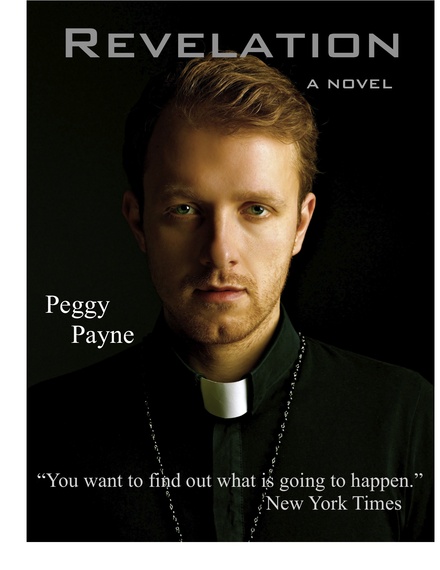As an 18 year-old Methodist from North Carolina, visiting Rome for the first time, I marveled at the sidewalk traffic of beautiful young priests. The crowds of pedestrians included dozens of dark-eyed men in their striking black garb and clerical collars.
I was wowed. Are all these guys celibate? I asked my young hormonally-charged self. Oh, surely not. I didn't for a moment believe it.
Being a teenage girl could certainly have affected my view of the question. But the idea of all these vital men depriving themselves in this way was disturbing. I didn't dwell on that long; instead I simply dismissed the possibility that it was true, and continued to revel in the beauty around me.
Decades later, celibacy is under wide public discussion again after Pope Francis recently re-opened the subject. This time, without that diverting parade of Roman men before me, I am fully aware of troubling elements in the chastity vow that priests are required to make.
While there are many reasons to object to the idea, there's one that I keep returning to: There is a baffling paradox in the very concept of religious celibacy. Perhaps most important is that sexual ecstasy and spirituality seem complementary in that both offer moments of expansion beyond the ordinary self.
Through sex we join with another being, gaining awareness of the other as well as acute sensitivity through the vulnerability the experience brings. Connected and receptive, we open into a space far larger than ourselves, even if only for seconds. What we feel physically at such times is explosive, a near-obliteration of the self into an entity unimaginably large.
"Human erotic love is a sign of something deeper, " writes leading Christian philosopher Alvin Plantinga, "something so deep that it is uncreated, an original and permanent and necessarily present feature of the universe."
Poet John Donne famously recognized the similarity of sexual and religious ecstasy. Born Catholic, he became an Anglican priest and the Dean of St. Paul's Cathedral, as well as a poet both bawdy and religious. In Elegy XX: "To His Mistress Going to Bed," Donne wrote of "this love's hallow'd temple, this soft bed."
On Justus.Anglican.org, James Kiefer writes that Donne "saw in his wife Anne (as Dante had earlier seen in Beatrice) a glimpse of the glory of God, and in human love a revelation of the nature of Divine Love." Donne's work regularly presented "amorous experience in religious terms and devotional experience in erotic terms...." At least one poem of Donne's has turned up in both a devotional manual and a collection of pornography.
The word ecstasy well and often describes both spiritual and sexual peak experience. On a superficial note, one iconic image shows how similar the two can look. The statue “The Ecstasy of St. Teresa” by Giovanni Bernini could easily be portraying — with the figure’s parted lips, closed eyes, face gone slack in surrender—either the face of a woman in orgasm or a saint in the thrall of God. The sculpture, which is labeled as religious and yet blatantly sexual, was created for the Cornaro Chapel of Santa Maria della Vittoria in Rome.
The element of surrender also shows clearly in a line of Donne's directed at God: "Take me to you, imprison me, for I, except you enthrall me, never shall be free, nor ever chaste, except you ravish me." Paradoxically, chastity is achieved by being sexually overwhelmed.
And then there's the screamingly obvious point: sex makes babies. Nothing is considered more holy than creating life, especially not by the Catholic church which says no to artificial birth control and no to abortion.
Finally comes the spiritual "bottom line" question: do people who refrain from making love and raising children become better people who are closer to God than they otherwise would be? This is a hypothesis that is untestable and so, one way or the other, must be taken on faith. I have no doubt that there are people for whom -- and times for which-- celibacy is the better choice. I cannot believe that it's the more virtuous choice or the surest route to God.
**

About Peggy Payne
Peggy Payne is the critically acclaimed author of the novels Cobalt Blue, Sister India (a New York Times Notable Book of the Year) and Revelation -- all of which bring to light the intersection of sex and spirituality. Her articles and essays have appeared in The Washington Post, Family Circle, Cosmo, and More as well as most major U.S. newspapers.